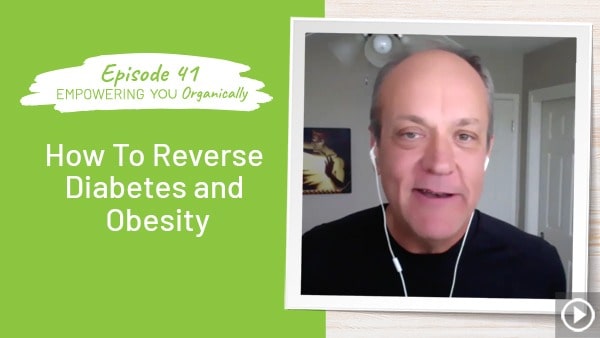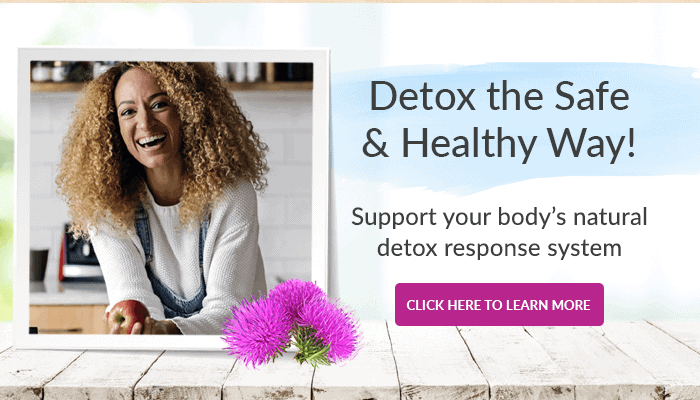Empowering you Organically – Season 6 – Episode 41
Title: How To Reverse Diabetes and Obesity
Hosts: Jonathan Hunsaker
Guest: Jon McMahon
Description: Today, we’re talking about Jon McMahon’s docuseries and his journey to conquer obesity and reverse diabetes. Imagine being over 357 pounds with triglycerides topping out at 2170 and making the decision to turn it all around. That is exactly what Jon did. We couldn’t wait to share his personal story and applaud his bravery in sharing his journey with the world in hopes of inspiring others to do the same.
* * *
About Jon
At 312 pounds with advanced type 2 diabetes and all of its complications, Jon’s future looked bleak and he knew it. The question that remained for him was this: “Do I want to live?” His answer was yes. And in 2017, Jon embarked out on a quest to get to the heart of the problem underlying the epidemic of diabetes and how people are successfully reversing it without medication.
The result was a nine-part documentary series, iThrive: Rising from The Depths of Diabetes and Obesity. The series has inspired hundreds of thousands of people to transform their lives and has given Jon his life’s mission of helping others rise from the death, from the depths, and reclaim their health.
* * *
How Bad is the Diabetes Problem?
- In a paper written by Dr. David Matthews, in 2010, he says, “What is coming is the black plague.”
- Neil Barnard, from the Physicians Committee on Responsible Medicine, says, “It’s going to be worse than the black plague. Millions and millions and millions of people are going to suffer long, and then they’re going to die in a lot of pain.”
- Google search results
- “Diabetes in Mexico” – “Diabetes in Mexico, an epidemic and the number-one killer.”
- “Diabetes in China,” China’s the most populous country with the most diabetics in the world, 109 million, and that’s not even pre-diabetes.
- “Diabetes in India,” oh, India and China are in competition for the “Diabetes capital of the world.”
- “Diabetes in America,” over 100 million people in America with diabetes.
- Pre-diabetes – 86 million in the United States with pre-diabetes. 90 percent of them, says the Centers for Disease Control, don’t even know it.
- Dr. Wes Youngberg said even the standards for measuring pre-diabetes are too lax.
- Just between three countries, 300-400 million people. And that’s not counting all the ones with pre-diabetes, another 200-300 million people
Myths Around Type-2 Diabetes
- You have to be fat.
- Obesity is highly correlated with it.
- Dr. Wes Youngberg says, “If you think you’re skinny and you’re off the hook, think again.
- 20 or 30 percent of those with diabetes are in their healthy BMI range.
- You have to be old, in your 40s or 50s to get diabetes.
- Young people are getting diabetes now in college, in their teens, now in high school.
- Epigenetics – gene expression can be turned on by your environment and what you do.
• If you take one parent that is obese, one parent out of two that’s obese, their child is four times more likely to be obese.
• If both parents are obese, this obesity risk factor increases the child’s risk factor for diabetes, not by 1 ½ times, or 1 ¾ or 2 times, by 30 times. If both parents are obese during the conception, the birth, and the raising of the child, the child is 15 times the likelihood to be obese.
Jon’s Mission
- Wake people up.
- When they’re awake, inspire them.
- If people ever wanted to change the world, it would be by changing ourselves from the inside out.
We Are All Individuals
We have individualized needs, and our genes are different. In large ways, we’re similar, but in small ways, we have a lot of variance.
Jon’s Journey
- A friend said to Jon, “Jon, I’m not going to bug you anymore. I’m not going to ask you what you ate. I’m not going to ask you how you’re doing, what your weight is, how you’re—if you’re following—you’re reaching your goals, or whatever. Because I care more about you than you care about yourself. Jon, you’ve got to decide whether you want to live.”
- Jon was intentional about his decision. “I want to live.”
- Educated himself on type 2 diabetes and obesity.
- Interviewed people on nutrition and the psychology of food addiction.
- Dr. Susan Pierce-Thompson, and Dr. Doug Lyle and Allen Goldhamer
- Our drives
- Wanting the richest food and seeking out the richest food in the environment.
- Foods are manufactured to stimulate the dopamine pathway exactly like cocaine, heroin or nicotine.
- Law of the conservation of energy – whatever’s more convenient for us, that’s what we’re going to do.
- Manage our environment, and make it work for us
- He took time to learn about his personality traits about how he can navigate through to his goal.
- Movement matters – walking an hour a day, or half hour a day, or some simple exercises.
- Once the body gets a little free of some of the toxins, free of some of the weight, it wants to move.
- Ask for help. Connection and community are key.
Outcome
- Jon lost 100 pounds
- Jon reversed, reversed his diabetes and obesity.
- He is not obese, and he is not diabetic.
- Jon’s A1C, I the words of his doctor, is better than most kids in college that come through his office. It’s 4.6.
One Last Bit of Advice from Jon
“You are not alone, you are not broken, and you are not bad and wrong. You are okay. You can actually do it. If I can do it, anybody can do it.”
* * *
Subscribe to Empowering You Organically
Never miss an episode!
APPLE PODCASTS SPOTIFY GOOGLE PODCASTS
–
Episode 41 – How To Reverse Diabetes and Obesity





